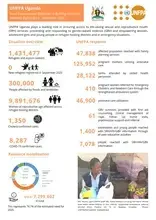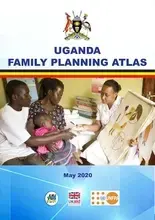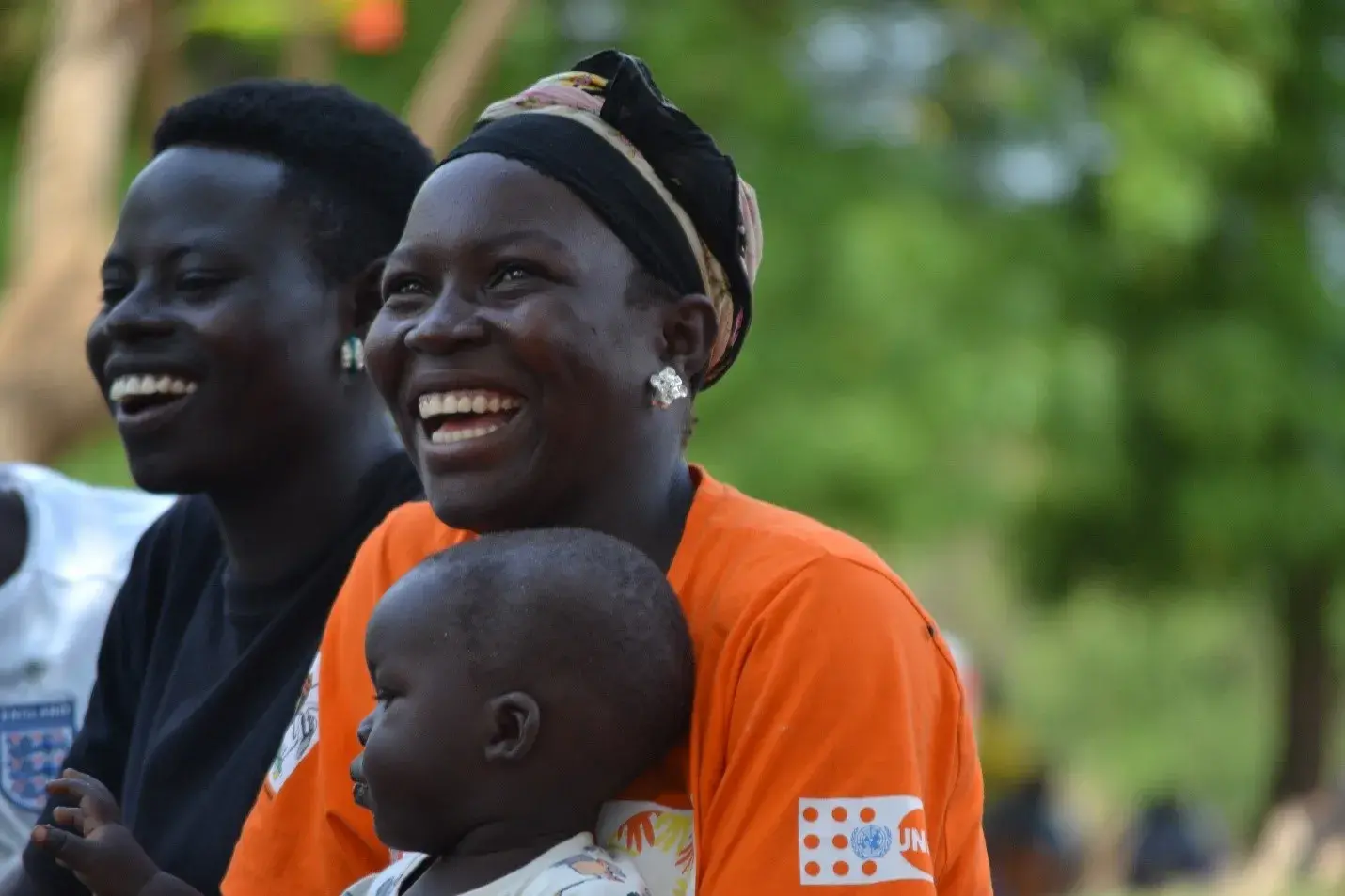Bidibidi settlement, YUMBE: Flora, Abari and Jessica are all single young mothers living in the Bidi- Bidi refugee settlement in the West Nile district of Yumbe. The 17 -year-old teenage mothers are part of a group of adolescent girls, participating in the weekly life skills and psychosocial support sessions at the women and girls safe space run by International Rescue Committee (IRC) with funding from UNFPA.
“I heard about the women and girls center at the community meeting and I decided to join the adolescent girls’ programme, where I learnt the importance of making my own income,” said Flora sharing her experience of teenage motherhood.
By the age of 15, Flora was pregnant with her first child from a case of sexual abuse by a brother to a friend having dropped out of school in primary seven.
Not knowing any information about post-rape management services, she chose to remain at her abusers family where she was taken in as a ‘wife’. When the South Sudan conflict resumed in 2016, Flora and her husband arrived in Uganda and were relocated to Bidi Bidi refugee settlement. She was pregnant and gave birth four months later at Koro health center in zone 2.
“I had nothing for my child except soap that I had received during distribution, but I was so happy when the midwife handed me a bucket from UNFPA, containing a baby shawl, baby cloth, under wear for me, different items and even this T-shirt that I still wear,” she said.
As a survivor of domestic violence, Flora continues to participate in weekly psychosocial support sessions at the safe space, which she says have helped her understand more about violence against women, family planning and some strategies to deal with issues affecting her, including reporting.
At the adolescent girls programme, is where she met and made friends with Abari and Jessica, whose motherhood experience is similar to hers. Unlike Flora, Abari and Jessica are living as single young mothers in the settlement, without any family support.
“When the war intensified, my family scattered, I ran with my child alone. Up to now, I do not know where they are”, said Abari gazing at a distance. Her family rejected her marriage to the man who impregnated her, insisting that she is still young and cannot be a fourth wife to the man.
Jessica on the other hand got married at 14 years after dropping out in primary six with the hope that the man will provide some support to her and her mother. Unfortunately, it has not gone as she had hoped.
All the three girls wish to return to school and complete their schooling or at least gain from some economic skills and livelihoods training to be able to earn some income to substitute their monthly food ratios, which they said does not last the next cycle since they sometimes sell it to buy other items like soap.
According to antenatal attendance records in the health facilities, teenage pregnancies in Bidi Bidi refugee settlement currently ranges between 18 – 22 percent. Some of the young girls are – by the age of 14 years - already married or living with their partners.
UNFPA launched a national campaign code named “Let girls be girls. Invest in ending teenage pregnancies” and rolled out to refugee settlements throughout 2017, as strategy to strengthen efforts to keep girls in school and support initiatives that build their life skills. Today, the campaign continues with the recently launched “Live your dream” encouraging girls to stay in, complete school, and achieve their potentials.
Now, Flora, Abari and Jessica are some of the girls who got this message and have made a decision to return to school to achieve their potential and live their dreams.
-Written by Patricia Nangiro





